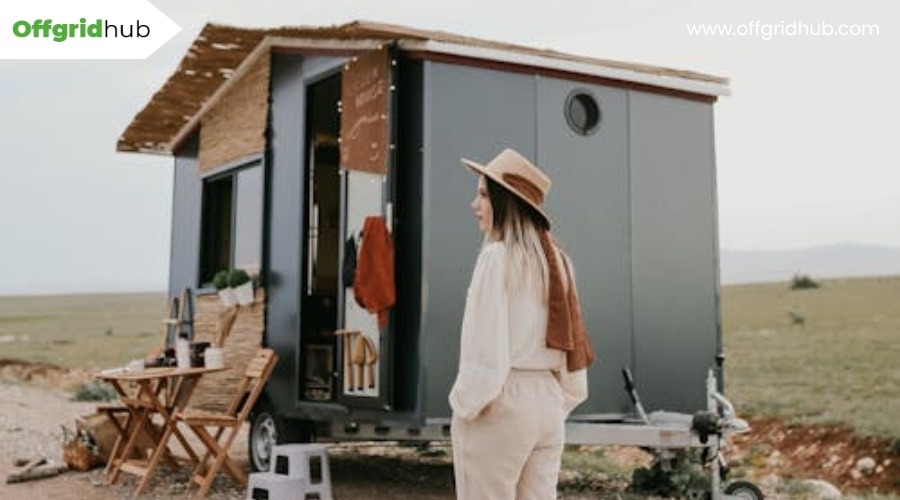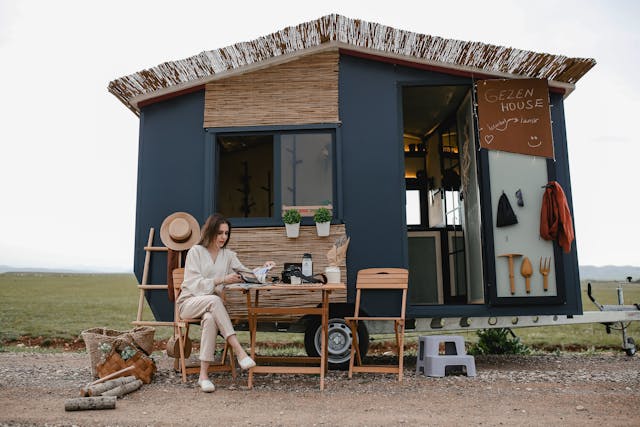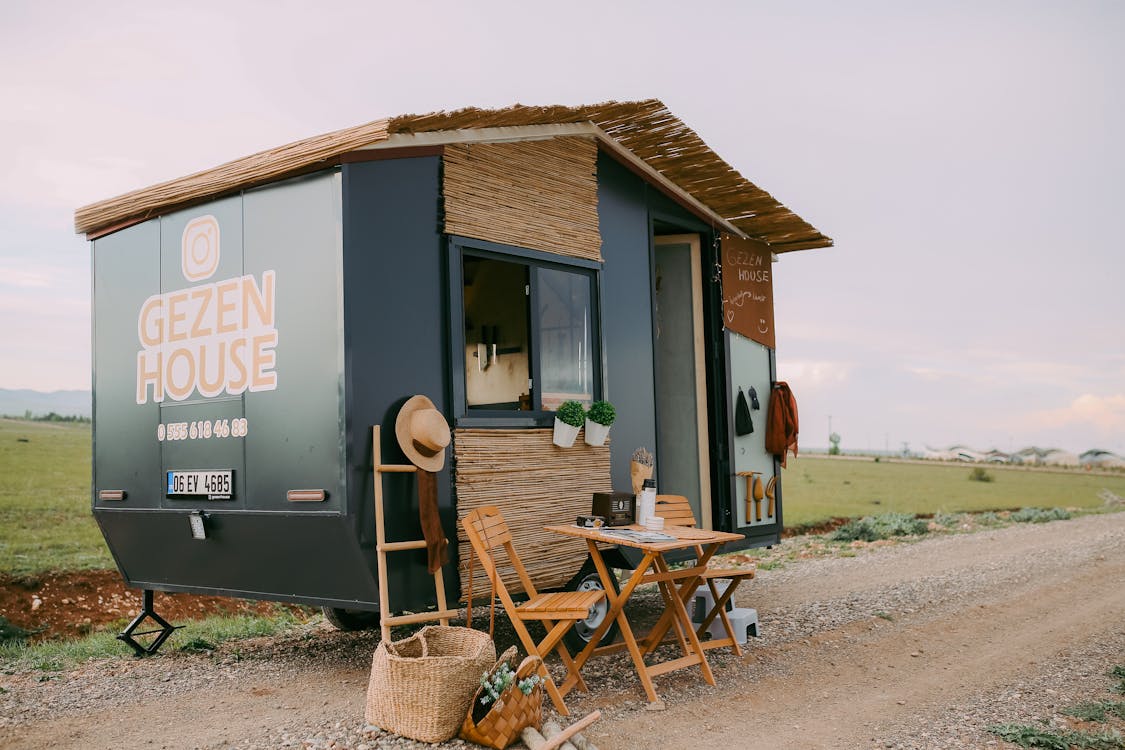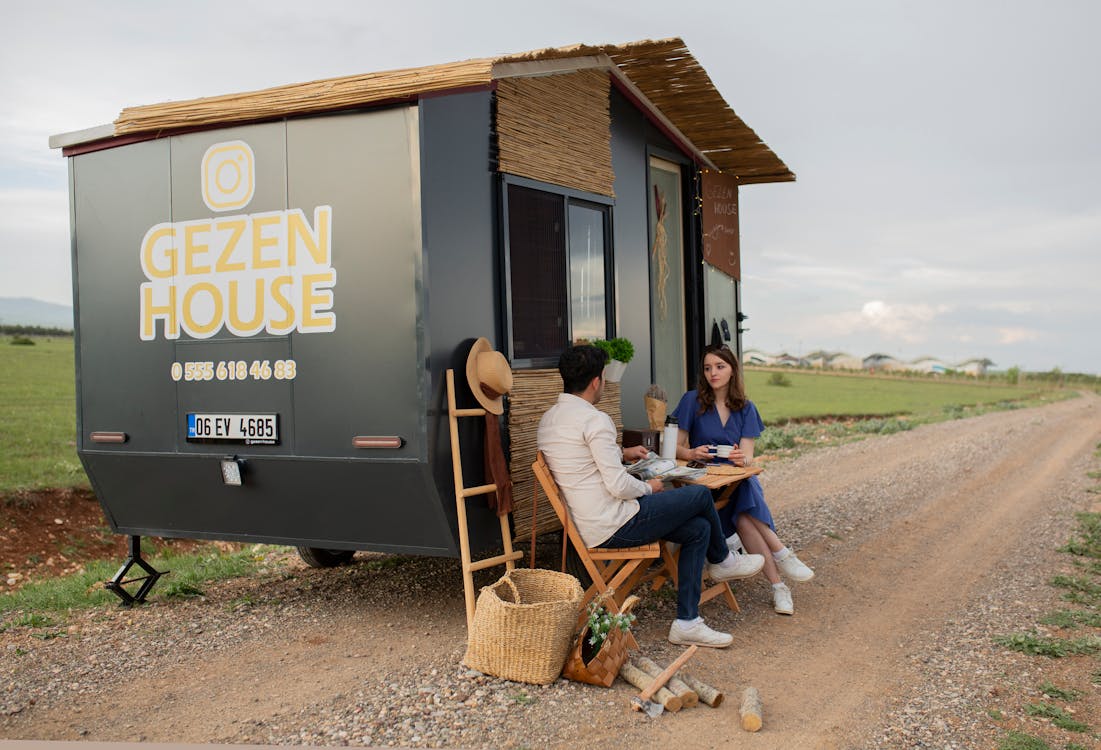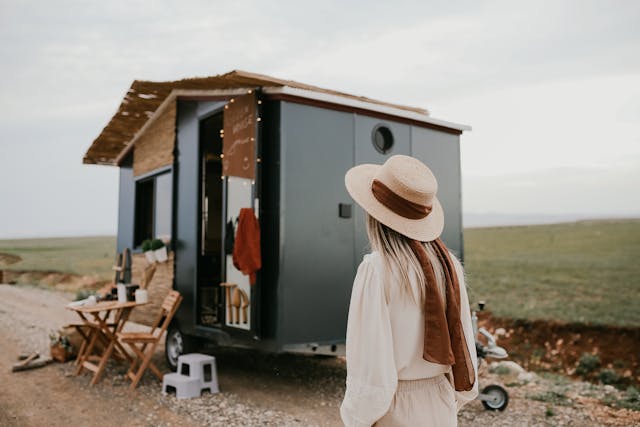Imagine being able to pack up your entire house and roam the country like a modern-day nomad; that’s the allure of tiny homes on wheels. Yet, you’re also faced with the age-old desire for stability and permanence that only a foundation can offer.
As you weigh your options, consider how each choice aligns with your lifestyle, budget, and long-term goals. Tiny homes on wheels grant unparalleled flexibility and potential savings, but they also come with their share of legal hurdles and practical limitations.
On the other hand, opting for a foundation lays the groundwork for a more traditional sense of home, albeit with its financial and regulatory complexities. To make an informed decision, you’ll need to explore the nuances of both paths, each offering a unique blend of freedoms and constraints that could dramatically shape your future.
Understanding Your Lifestyle Needs
Before choosing between a tiny home on wheels or a foundation, it’s crucial to assess how your daily habits, work setup, and personal commitments align with each option. The tiny house lifestyle offers a unique blend of minimalism and flexibility but requires a deep understanding of your needs. If you’re someone who loves to travel or has a job that allows remote work, a tiny home on wheels could be the perfect fit. This option lets you explore without leaving the comforts of home behind.
On the other hand, if you have a large family, own pets, or prefer a stable community, a tiny home on a foundation may suit you better. It’s also wise to consider your comfort with various energy and sewer systems. Eco-conscious individuals may lean towards designs that support green living practices.
Your lifestyle, whether you’re single, part of a family, a car owner, or a retiree, significantly impacts your tiny home choice. Preferences for minimalist living and the desire for design flexibility should guide your decision. Ultimately, aligning your tiny house selection with your lifestyle ensures a satisfying living experience.
Analyzing Financial Implications
When considering a tiny home, it’s crucial to weigh the financial implications, including initial costs, maintenance, and potential resale value.
Homes on trailers often present a more budget-friendly option upfront due to their lower initial costs compared to foundation homes. However, the total cost of ownership can escalate with factors such as insurance, truck maintenance for mobility, and potential relocation costs. Despite these expenses, you might save on property taxes, given that homes on trailers are usually classified differently than traditional real estate.
Maintenance for tiny homes on wheels can be more manageable due to their smaller size and simpler construction, potentially leading to lower long-term maintenance costs. Yet, financing these homes might be trickier, as they’re often classified as RVs, affecting your ability to secure traditional mortgage financing. This classification can influence the overall affordability and might affect the resale value, which can differ significantly from foundation homes.
| Aspect | Homes on Wheels | Homes on Foundation |
|---|---|---|
| Initial Costs | Lower | Higher |
| Property Taxes | Lower | Higher |
| Total Cost of Ownership | Influenced by mobility costs | More stable, but higher due to real estate factors |
Understanding these financial implications is key to making an informed decision that aligns with your budget and lifestyle.
Evaluating Safety and Stability
Assessing the safety and stability of tiny homes, it’s essential you understand that foundation-based options generally offer more security due to their solid anchoring to the ground. These permanent structures are less susceptible to shifting or tipping, which is a significant advantage in maintaining long-term safety.
On the other hand, tiny homes on wheels face a higher safety risk, especially during transportation and in adverse weather conditions. The mobility that offers freedom also introduces challenges in ensuring stability.
To mitigate these risks, mobile tiny homes require careful consideration of safety features. Proper anchoring and stabilization techniques are vital, not just when the home is in transit but also when it’s stationary. Enhanced safety can be achieved through reinforced framing, secure tie-downs, and meticulous attention to weight distribution.
These measures are crucial for both types of tiny homes, but they’re especially pertinent for those on wheels to prevent accidents and ensure a safe living environment.
Navigating Legal and Zoning Issues
After considering safety and stability, it’s crucial you’re aware of the legal and zoning issues that come with tiny homes, especially those on wheels. Zoning laws can significantly restrict where you can live in your tiny house on wheels, leading to challenges in finding legal parking spots. Imagine the frustration of having your perfect tiny home ready to go, only to discover there are very few places you’re allowed to park and live in it.
RV parks and campgrounds might seem like a viable option, but length restrictions can limit your choices, making it difficult to find a spot that accommodates your home. Moreover, local regulations may demand you move your tiny house on wheels frequently to comply with zoning laws, adding an unexpected layer of complication to your tiny home lifestyle.
The struggle to find suitable and affordable parking locations due to these zoning regulations is a significant issue. With limited options for legal parking spots, you might find yourself facing obstacles that challenge the viability of living in a tiny house on wheels. This reality makes understanding and navigating the legal landscape an essential step in your tiny home journey.
Considering Mobility and Flexibility
One of the most appealing aspects of tiny homes on wheels is their ability to offer you unparalleled mobility and flexibility in your living situation. If you’re someone who cherishes the freedom to change locations, these homes are an ideal match. Their design on a trailer foundation not only makes relocation feasible but also cost-effective due to their smaller size.
Moreover, the flexibility you get with tiny homes on wheels extends beyond just mobility. The ability to design your space in a way that incorporates sustainable practices means you’re using fewer resources and energy, making a positive impact on the environment. This flexibility also allows you to adapt to different climates and resources as your needs or desires change, ensuring you’re not bound to one location due to the constraints of traditional housing.
Embracing a tiny home on wheels means embracing a lifestyle that offers a sense of freedom not typically found with foundation homes. You’re not just investing in a place to live; you’re investing in a lifestyle that prioritizes mobility, flexibility, and the ability to adapt to your evolving needs and desires.
Conclusion
In conclusion, choosing between a tiny home on wheels or a foundation boils down to your lifestyle, budget, and priorities. If you crave mobility and lower upfront costs, wheels might be your path.
Yet, for a more stable, secure home environment, a foundation offers perks despite higher initial costs and zoning hurdles. Weigh safety, legalities, and financial aspects carefully.
Remember, your decision shapes your living experience, so consider what aligns best with your dreams and practical realities.
